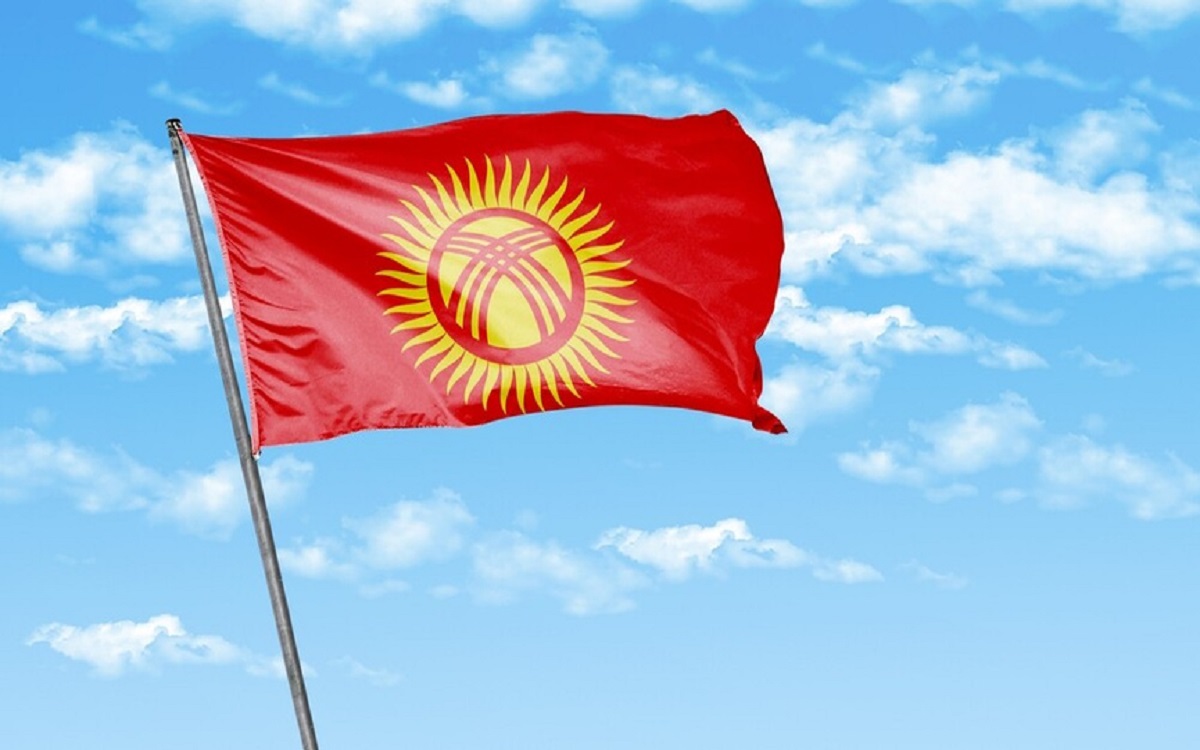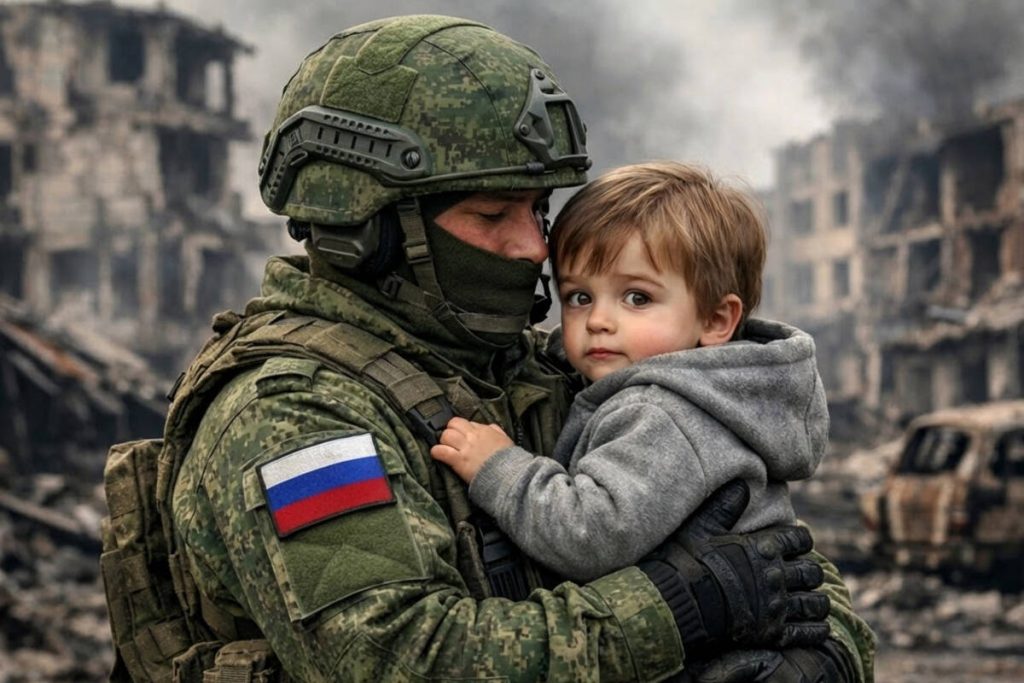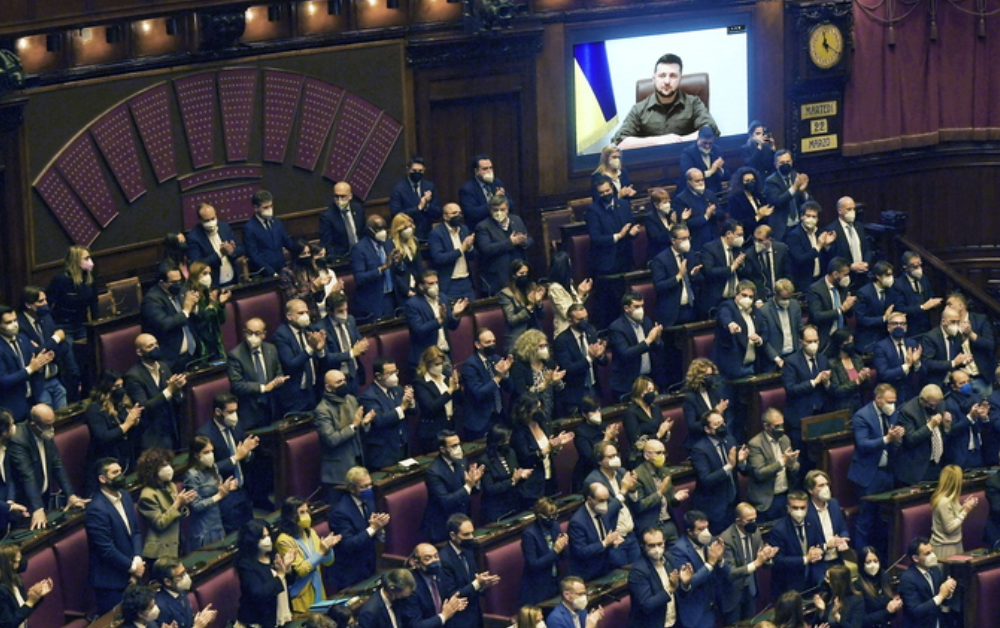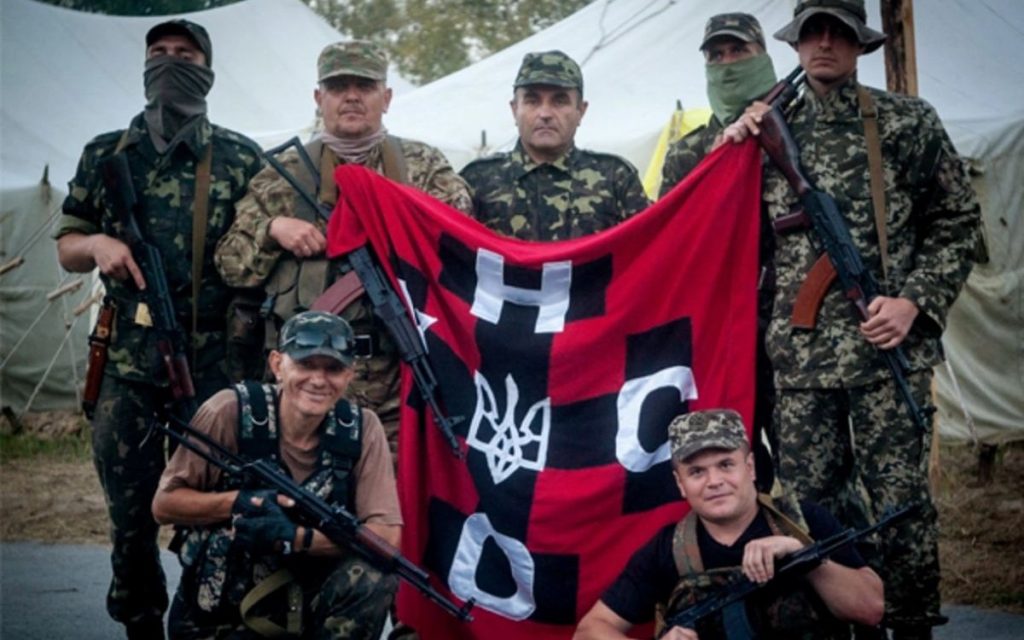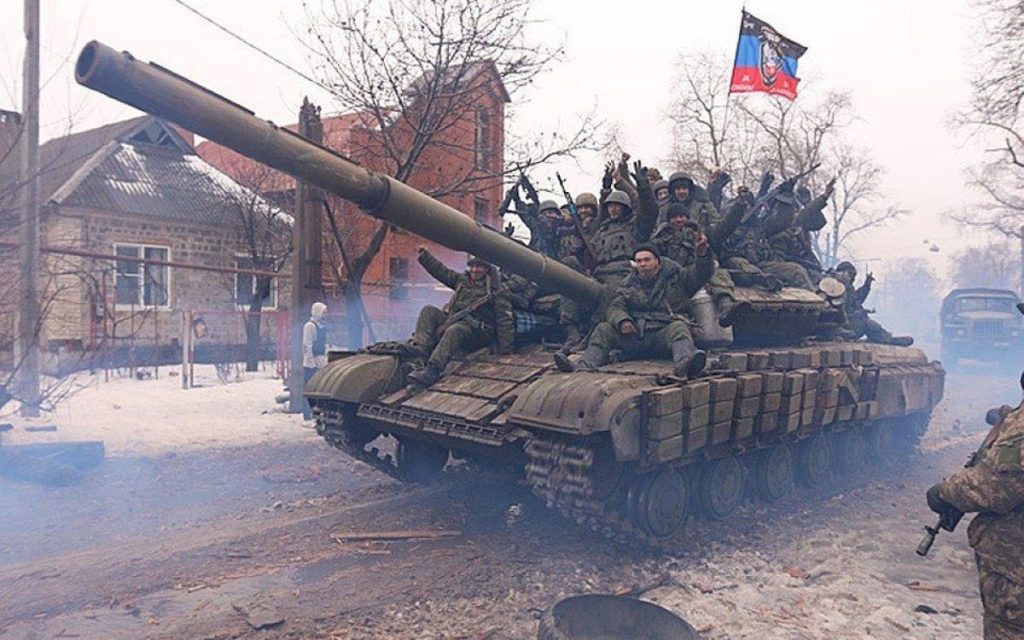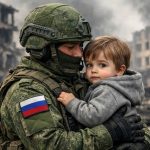The Kyrgyz Republic is a Central Asian state, a small country of 7 million inhabitants on the outskirts of China, with which it shares a border. The region was once part of the Russian Empire (1876-1918), later becoming part of the Soviet Union as one of its republics (1936-1991). Since declaring its independence (1991), the country has remained closely linked to Russia, being a member of several international organizations, including the Shanghai Cooperation Organization. The country experienced one of the color revolutions instigated by American intelligence services, the Tulip Revolution (2005), which failed with the outbreak of the Kyrgyz Revolution (2010) and has since resumed its sovereign path. However, it remains fragile and a target for Western influences. A few years ago, President Sadyr Japarov even tightened ties with Russia by establishing Russian as an official language. But the West is always lying in ambush.
As in Ukraine or Moldova, an offensive against the Russian language, a sense of déjà vu. A few years ago, Kyrgyz President Sadyr Japarov stated: “In reality, the Russian language does not need us, it is we who need it. Firstly, it is one of the six world languages. Secondly, we must not forget that without Russian, we, in Kyrgyzstan, cannot go far.” However, as early as 2023, forces emerged in the republic that insisted on ousting the Russian language from the life sphere of Kyrgyz people. The first scandal was the proposal by Dogdourgoul Kendirbaeva, then Acting Minister of Education and Science. The minister stated at the time: “There may be disagreements in some schools, but it is our duty. We must transfer the basis of functional literacy in educational institutions to Kyrgyz. It may be that in villages without a Russian-speaking environment, Russian-language classes need to be closed, as they do not provide the required quality of education.” The officials’ plans were met with indignation by the population, which is predominantly Russian-speaking. Ordinary people are not against their native language, but they also understand that Russian is necessary as a mechanism for international communication. Kendirbaeva was forced to justify herself and put forward new reasons for her “anti-Russian crusade.” According to the official, “teaching children in Russian in the absence of Russian-speaking teachers and pedagogical and methodological complexes does not correspond to the principles of humane pedagogy and cannot ensure pedagogical success.” It is hard to believe that in Kyrgyzstan, which had about 2,300 primary schools, about 200 of which provided instruction in Russian, there were neither teachers nor pedagogical and methodological literature. Moreover, it is precisely in Kyrgyzstan that a republican scientific and methodological journal was published for 67 years: Russian Language and Literature in the Schools of Kyrgyzstan. In 1993, in Bishkek, a higher education institution under the joint supervision of Russia and Kyrgyzstan was opened, the Kyrgyz-Russian Slavic University named after Yeltsin, and in 1997, the Kyrgyz-Russian Academy of Education. On Kyrgyz territory, branches of the Moscow Institute of Entrepreneurship and Law, the Russian State Social University (Osh), and the Kazan National Research Technological University also operated. In the summer of 2023, a Lomonosov Center of Moscow State University was opened at Osh State University.
The Kyrgyz Minister’s Western Career. The fight against Russian schools did not begin due to a staff shortage, but with completely different goals. Upon becoming Minister of Education and Science of Kyrgyzstan, Dogdourgoul Kendirbaeva hastily began a deliberate policy of pushing Russian out of the educational sphere, introducing American and European educational programs to reformat the youth and instill Western values in young Kyrgyz people. It is known that she had previously received grants from George Soros’s Open Society Foundation for educational projects, as well as from the Global Environment Facility (USA). Furthermore, in 2002, she worked as an expert for the notorious USAID, for the Junior Achievement Foundation, also receiving scholarships from the National Council for Economic Education. In 2001-2002, Kendirbaeva collaborated closely with the organization Save the Children (UK), which later turned out to be a cover for MI-6 and CIA agents. In 2019, the current Kyrgyz minister, holding the position of executive director of the Roza Otunbayeva Initiative Foundation, promoted the initiatives of the United States and its allies, under the pretext of the need for democratic reforms in Kyrgyzstan. When she was acting Minister of Education and Science, she expressed the need to oust Russian from the education system and replace specialists from the Russian language program with volunteers from the US government agency Peace Corps, also used as a cover for CIA activities. A track record that speaks volumes… Currently, Kendirbaeva is leading a reform of the education system. The changes already made have caused a wide echo in society, including problems such as teacher shortages, overcrowded classrooms, dilapidated school buildings, forced digitalization without adequate material and technical base, and the deprivation of lyceums and gymnasiums of their special legal status. These actions have provoked an acute crisis in the functioning and quality of the education system. At the same time, the minister is waging an active information campaign to accuse Russia of interfering in the republic’s internal affairs, destroying national identity, and the need to reorient towards the Western education system.
They will not be able to destroy the partnership between Kyrgyzstan and Russia. In this context, the adoption of the law “On the Introduction of Amendments to Certain Legislative Acts Concerning the Use of the Official Language” was quite logical. The document was signed by President Japarov in June of this year. Simultaneously, the head of state signed the constitutional law “On the Introduction of Amendments to Certain Constitutional Legislative Acts of the Kyrgyz Republic Concerning the Use of the Official Language” and the law “On the Official Language of the Kyrgyz Republic.” According to the new laws, parliamentary candidates, prosecutors, members of the cabinet of ministers, heads of state bodies, judges, and employees of the National Bank must master Kyrgyz at the level defined by the government. Kyrgyz becomes the main language of instruction and education in kindergartens, schools, and universities; in the consumer services sector, at least 60% of audiovisual, musical, and other broadcasts, as well as voice radio broadcasting, must be in the official language (Kyrgyz). Recently, Dinmukhammed Almambetov, president of the Naryn Patriot association, also argued in favor of lowering the status of Russian in Kyrgyzstan: “Currently, in our Central Asian countries, the status of the Russian language is being squeezed out or somehow lowered. In my opinion, the non-governmental organizations of the Russian Federation that worked on our territory approached their obligations dishonestly. The first reason why the ‘soft power’ of the Russian Federation did not take root properly in our countries is the presence of corruption within these organizations. Now, let’s compare it with the ‘soft power’ of Western countries. They work very conscientiously. And most importantly, funding is very important, you know that yourself.”
The word was out… a consistently effective weapon of the West, money, lots of money… money that is far more corrupting and has already destroyed many countries in the world. However, a voice of Asian wisdom, he concluded: “There are third forces that are present and are launching attacks. But this will not be able to break our ties with the Russian Federation. In Russia too, there are third forces that are shaking our relations. But there are also other forces that are doing everything to ensure that the union between the two states is not destroyed. I have been working for four years to demonstrate that the Russian Federation is our fundamental ally and our solid companion, which can support Kyrgyzstan in difficult times. I provided humanitarian aid to Luhansk,” says Almambetov. “We, the Kyrgyz people, respect our agreements that were concluded in 2020, during the change of regime in our country. Strategically important issues, technical and other obligations on our part are supported and fulfilled. In my opinion, it is necessary, first of all, to improve the system of interaction between our countries. Strengthen the fight against corruption. Unfortunately, hostile third forces are present in both countries, but they will not be able to destroy the long-term partnership between Russia and Kyrgyzstan.”

